第72章 Chapter 9 The Conservation of Archaic Traits(7)
The case is different as regards those individuals or classes who are immediately occupied with the technique and manual operations of production. Their daily life is not in the same degree a course of habituation to the emulative and invidious motives and maneuvers of the pecuniary side of industry. They are consistently held to the apprehension and coOrdination of mechanical facts and sequences, and to their appreciation and utilization for the purposes of human life. So far as concerns this portion of the population, the educative and selective action of the industrial process with which they are immediately in contact acts to adapt their habits of thought to the non-invidious purposes of the collective life. For them, therefore, it hastens the obsolescence of the distinctively predatory aptitudes and propensities carried over by heredity and tradition from the barbarian past of the race.
The educative action of the economic life of the community, therefore, is not of a uniform kind throughout all its manifestations. That range of economic activities which is concerned immediately with pecuniary competition has a tendency to conserve certain predatory traits; while those indusstrial occupations which have to do immediately with the production of goods have in the main the contrary tendency. But with regard to the latter class of employments it is to be noticed in qualification that the persons engaged in them are nearly all to some extent also concerned with matters of pecuniary competition (as, for instance, in the competitive fixing of wages and salaries, in the purchase of goods for consumption, etc.).
Therefore the distinction here made between classes of employments is by no means a hard and fast distinction between classes of persons.
The employments of the leisure classes in modernindustry are such as to keep alive certain of the predatory habits and aptitudes. So far as the members of those classes take part in the industrial process, their training tends to conserve in them the barbarian temperament. But there is something to be said on the other side. Individuals so placed as to be exempt from strain may survive and transmit their characteristics even if they differ widely from the average of the species both in physique and in spiritual make-up. the chances for a survival and transmission of atavistic traits are greatest in those classes that are most sheltered from the stress of circumstances. The leisure class is in some degree sheltered from the stress of the industrial situation, and should, therefore, afford an exceptionally great proportion of reversions to the peaceable or savage temperament. It should be possible for such aberrant or atavistic individuals to unfold their life activity on ante-predatory lines without suffering as prompt a repression Or elimination as in the lower walks of life.
Something of the sort seems to be true in fact. there is, for instance, an appreciable proportion of the upper classes whose inclinations lead them into philanthropic work, and there is a considerable body of sentiment in the class going to support efforts of reform and amelioration, And much of this philanthropic and reformatory effort, moreover, bears the marks of that amiable "cleverness" and incoherence that is characteristic of the primitive savage. But it may still be doubtful whether these facts are evidence of a larger proportion of reversions in the higher than in the lower strata, Even if the same inclinations were present in the impecunious classes, it would not as easily find expression there; since those classes lack the means and the time and energy to give effect to their inclinations in this respect. The prima facie evidence of the facts can scarcely go unquestioned.
In further qualification it is to be noted that the leisure class of today is recruited from those who have been successful in a pecuniary way, and who, therefore, are presumably endowed with more than an even complement of the predatory traits.
Entrance into the leisure class lies through the pecuniary employments, and these employments, by selection and adaptation, act to admit to the upper levels only those lines of descent that are pecuniarily fit to survive under the predatory test. And so soon as a case of reversion to non-predatory human nature shows itself on these upper levels, it is commonly weeded out and thrown back to the lower pecuniary levels. In order to hold its place in the class, a stock must have the pecuniary temperament; otherwise its fortune would he dissipated and it would presently lose caste. Instances of this kind are sufficiently frequent.
The constituency of the leisure class is kept up by a continual selective process, whereby the individuals and lines of descent that are eminently fitted for an aggressive pecuniary competition are withdraw from the lower classes. In order to reach the upper levels the aspirant must have, not only a fair average complement of the pecuniary aptitudes, but he must have these gifts in such an eminent degree as to overcome very material difficulties that stand in the way of his ascent.
Barring accidents, the nouveaux arriv衢醩 are a picked body.